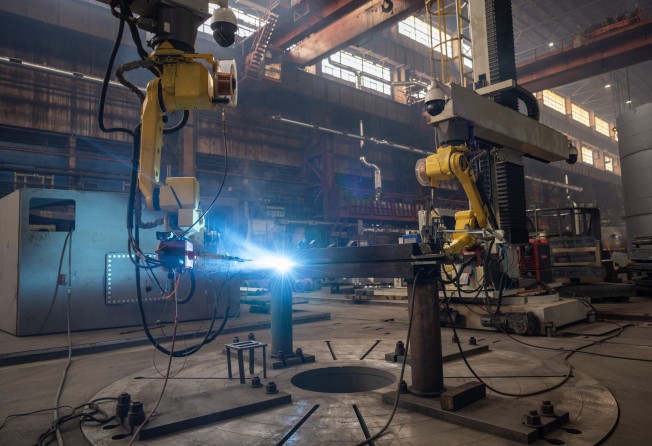06:01
There’s a global semiconductor shortage and this is why it matters

Chinese companies have come to appreciate the risk of losing access to key equipment or components. Their responses, sometimes with financial assistance from local governments, are leading to a wave of import substitution.
While precision and complexity make some equipment difficult to replicate in the short term, a decade could be enough for China to be self-sufficient in some key technologies. The replication of global tech supply chains within China will lead to overcapacity and price wars.
The United States is imposing restrictions on Chinese companies’ access to key technologies, such as equipment needed to manufacture advanced semiconductor chips and the related software. This is having a significant impact on some markets. For example, Huawei, which briefly overtook Samsung in terms of smartphone shipments in early 2020, has struggled after US sanctions cut off its access to semiconductors developed or produced using American technology.
Global sales of mobile phones, tablets, personal computers and printers were worth about US$700 billion last year. These products need the latest chips and are mostly made in China. Foreign companies, such as Apple, that have factories in China are largely not affected. Many Chinese companies, perhaps because the US considers them tech users rather than creators, are not subject to restrictions. They keep making consumer tech products for export or the domestic market.
The impact of the chip war has been limited so far. Of course, it could get worse. If the US expands the policy to all China-based production, the effects would be significant.
The importance of latest-generation chips is being exaggerated. Mature technology like 28 nanometre chips or above are still very much in demand. Products that have moved to new chips could move back. The global economy was working fine a decade ago without the latest chips. Being cut off from 7nm chips would not be the end of the world.
China is moving to the mature tech that it can sustain. That is likely leading to overcapacity and price wars in that segment. Leading-edge semiconductor firms such as Taiwan Semiconductor Manufacturing Company still depend on mature tech for a significant share of their revenue. Life will become harder for just about everyone.
It is possible that the US could convince Europe and Japan to stop supplying equipment for mature tech, which could limit China’s expansion in the short term. However, it is likely that China will develop its own industry. That will lead to overcapacity in equipment production.
The people who support the chip war seem to think China cannot develop its own substitutes. This ignores the fact that the chip industry is not that old to begin with and has moved to different locations many times.
It began in the US in the 1960s before production and equipment manufacturing shifted to Japan in the 1980s. In the past two decades, production moved to Taiwan and South Korea while equipment manufacturing went to Europe and the US. It is arrogant to assume that China lacks the capacity to make breakthroughs in this industry.
A massive number of engineers in China pursue electrical and electronic engineering majors each year. Facing adversity like the tech war, the Chinese government will motivate these talented young people to help advance the domestic industry.
The biggest issue for the industry is that, when China does break through, it will mean a huge jump in production capacity. The consequence will be collapsing prices for the whole supply chain. The chip war has probably ruined the industry for investors for a long time to come. It will not be an attractive investment for private capital, and its best days are likely behind it.
The chip war is likely to have triggered a bad trend for many other businesses. Government subsidies in the US, Japan and China could lead to overinvestment. This would then motivate China to look into its other vulnerabilities and develop domestic substitutes, spreading overcapacity across many industries.
China’s factories are upgrading to 5G and AI-fuelled production models. The idea appears to be to make factories that do low-volume or bulky work operate like car factories instead. This is likely to involve wholesale rebuilding of these factories, something that will require massive amounts of capital.
The labour savings will make that investment productive in the long term, though the process does involve importing some key equipment and components, which could trigger worries among the businesses concerned.

For example, China accounts for a large chunk of industrial robot instalment, while Japan and Germany make most of these robots. The fear of losing access to such key products is clearly a pressing concern for the Chinese government. It will pour capital into this sector to make the country self-sufficient.
China’s model for tech breakthroughs taps into talent around the world. An engineer who comes to China to make a product that is a mature technology, but one that China doesn’t have, could list the company on the stock market. The financial rewards are just below what an engineer who works for a large company could attain. China’s form of state capitalism is a powerful magnet for talent.
As an old Chinese saying goes, ghosts will grind your rice for you if you pay enough. People who believe in the efficacy of the chip war lack sufficient appreciation for the power of money.
Andy Xie is an independent economist